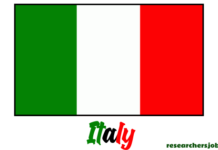PhD– Plasmodiophorid Effectors: A fully funded PhD position is open at Université Laval (Québec City, Canada) to investigate how effector proteins from plasmodiophorid pathogens reprogram plant root development. This exciting opportunity is ideal for candidates passionate about molecular biology, plant pathology, and plant–microbe interactions.
PhD Scholarship Opportunity – Morphological Changes in Plant Roots Induced by Plasmodiophorid Effectors
Scholarship Summary Table
| Designation | PhD Student |
|---|---|
| Research Area | Molecular Plant–Microbe Interactions, Effector Biology, Root Morphology |
| Location | Université Laval, Québec City, Canada |
| Start Date | January 2026 |
| Funding | Fully funded |
| Application Email | edelab2024@gmail.com |
Eligibility / Qualification
- Required: Master’s degree (must be completed before the start date)
- Background: Molecular Biology, Plant Pathology, Plant Sciences, or related fields
- Interest: Strong motivation in understanding plant–microbe interactions and effector biology
- Note: Applicants without a Master’s degree will not be considered
Job Description
The selected PhD candidate will:
- Investigate how plasmodiophorid effector proteins and peptides manipulate host root morphology
- Perform functional characterization of selected effector candidates
- Explore signaling pathways affected by pathogen-induced root reprogramming
- Be part of an interdisciplinary team focused on cutting-edge research in plant–pathogen interactions
This project builds on recent findings from the host lab and provides opportunities for high-impact publications and scientific growth.
How to Apply
Submit the following documents as a single PDF to edelab2024@gmail.com:
- Cover Letter – Include your motivation and research interests
- Curriculum Vitae (CV) – Please omit personal photos or sensitive personal details
- Academic Transcripts – From both undergraduate and Master’s studies
⚠️ Only shortlisted candidates will be contacted.
Last Date to Apply
Applications are open until the position is filled. Early applications are encouraged. Start date is January 2026.
For inquiries, please contact: edelab2024@gmail.com
🧬🌿 Join us to explore how pathogens reshape plant development!









